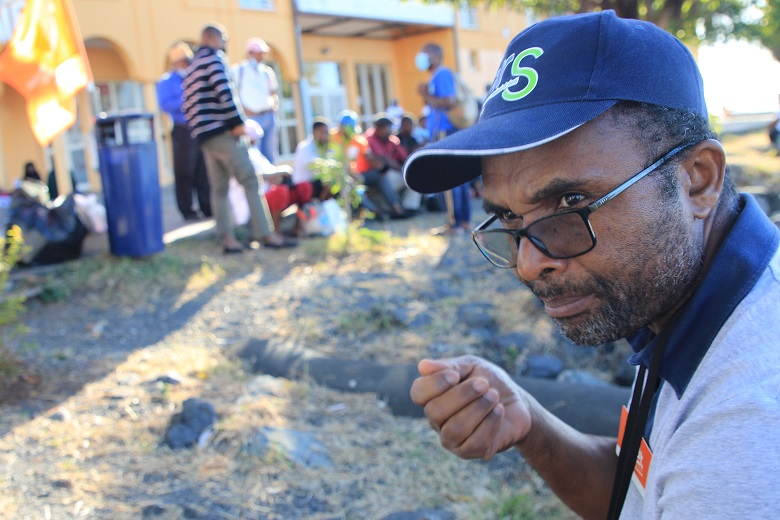Strike movements follow one another and resemble each other at the ARS and at the Mayotte hospital center where the CFDT decided this time in a common movement.
At the regional health agency, the long-standing claim was a full-fledged ARS, emancipated from Reunion. Since January 1, 2020, it’s done. But the current still does not pass between the union and the director Dominique Voynet, qualified as “politician” by the CFDT delegate Kamalidine Dahalani according to whom “she manages the ARS as one manages a political party”. The employee representative sums up his demands in four main areas. Governance first, which the staff would like to be more participatory. Already in October 2020, the strikers demanded more Mahoran executives. Today, the demand also relates to the participation of the Mahorais in “what we want in Mayotte in terms of health”, in other words, a health policy that is defined with more consultation with the inhabitants. More participation for the trade unionist also means more transparency. While the budget of the ARS has more than tripled in a few years to reach some 30 million euros last year, the strikers would like more visibility on the use made of these funds, and in particular the use which is makes envelopes allocated to associations which respond to public contracts in the field of health.
Worrisome situation in the psychiatric service
A point on which joined Ousseni Balahachi who is worried about the situation “which has worsened” in the psychiatric department of the CHM where several members of the nursing staff have slammed the door, he explains. The idea of a call for projects aimed at outsourcing this service also led him to demand better infrastructure, in particular news from the 2nd hospital promised by Emmanuel Macron during his visit, but also a better training offer in the territory. At the ARS as at the CHM, the union agrees that local training of doctors and more nurses would reduce turnover and improve the supply of care.
This is already the bet that has been made by those involved in vocational training who rely on local training to meet the needs of the territory and retain staff. The rest would depend on a new Regional Health Plan (PRS), the current one having been drawn up to stick to a joint Indian Ocean ARS with Reunion Island. In October, Dominique Voynet already explained that he favored the fight against Covid over the drafting of a document of “2000 pages” which would take “months” and on which the ministry was invited to comment.
In April, another call to strike demanded that “the Mahorais” be more “masters of their future”. Here again the director had disputed the accusations while regretting the difficulties in establishing a dialogue. “When I arrived, the agency had only one Mahorais department head, there are currently 7” she explained, refuting any discrimination in management positions. While recalling that an ARS “is the armed wing of the State in health matters. It wouldn’t occur to anyone to say ‘the prefecture to the Mahorais’ ”.
To the same demands the same answers
Answers that have not changed since the demands have “not changed at all” notes Dominique Voynet who counts with the ARS “14 strikers”, who “neither last week nor this week wished to meet me” she regrets.
“I left them a message to say that I do not understand that they do not come to talk in my office before the strike, when we can solve the problems before arguing is better. The only ones who never come to talk to me are the CFDT, I can’t understand this situation. “
And to underline that at the ARS, “we developed a territorial mental health plan in Mayotte, there was a conflict at the CHM between doctors and health executives, that must be settled at the level of the director of the CHM. , but we have recruited the professionals who make it possible to spend the summer and we are working on a mental health center at the hospital in connection with Reunion. There is no mental health center in Guyana either, ”she explains. Finally, she adds that a working meeting is scheduled for Friday with “three unions out of four. I do my job, I lead social dialogue at the ARS, social dialogue is everyday, not just the day after a strike. “
Y.D.
–

